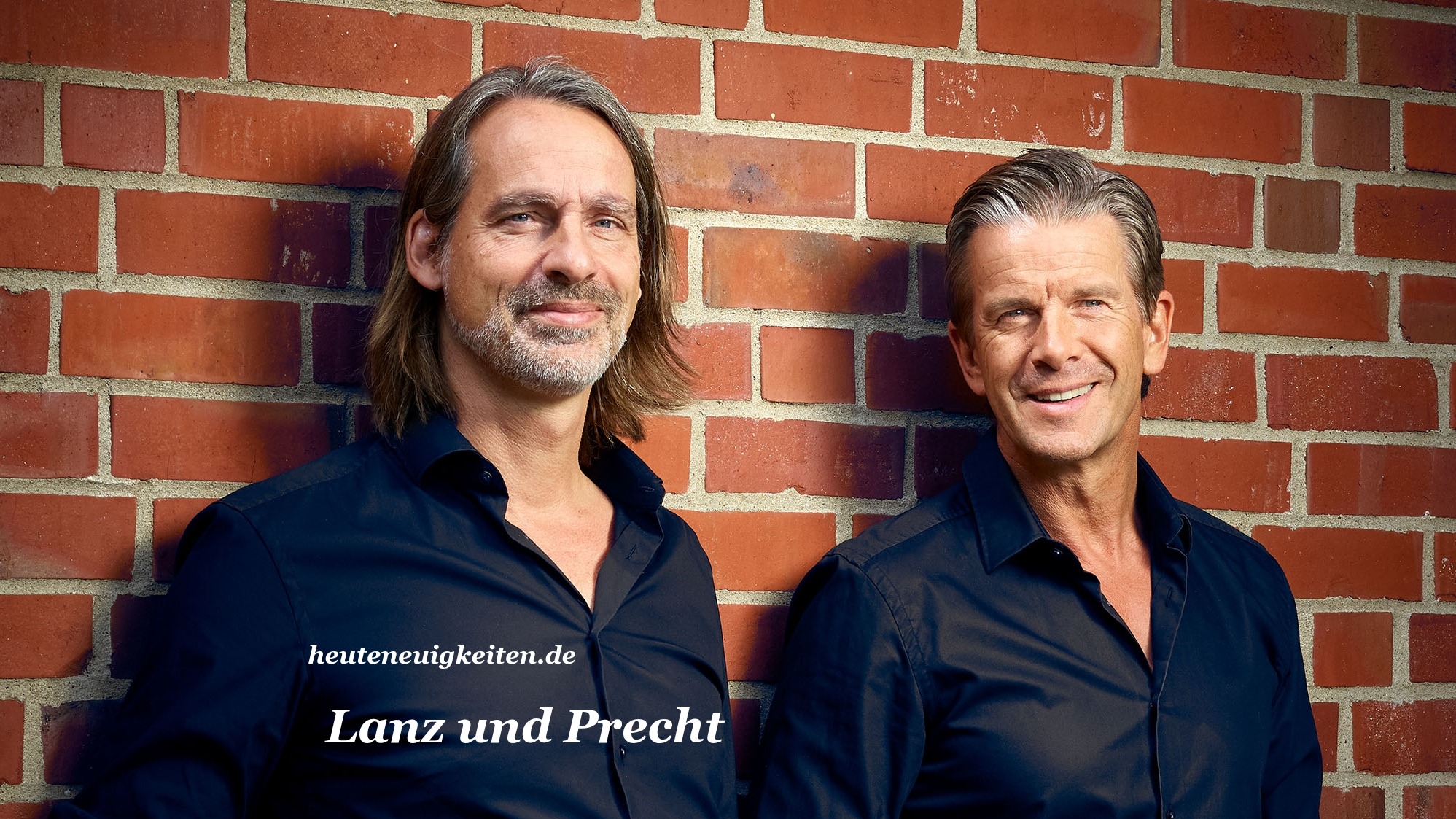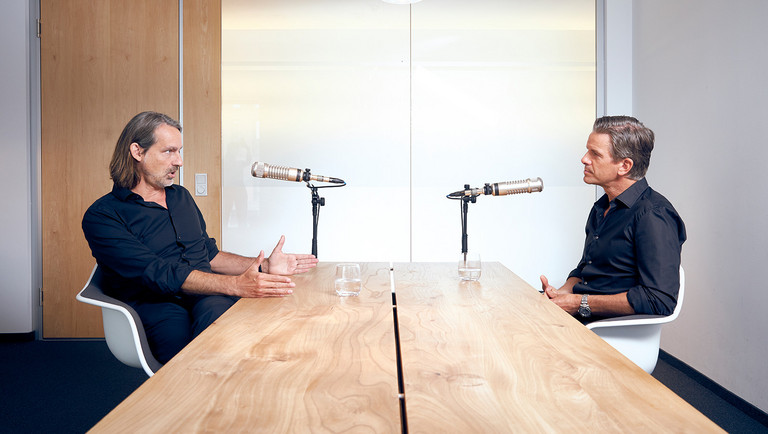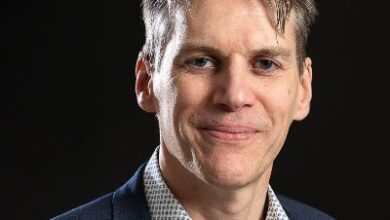Lanz und Precht: The Thought-Provoking Duo Redefining Conversations in Modern Germany

Introduction: The Rise of “Lanz und Precht” in the German Media Landscape
Lanz und Precht In a world dominated by quick opinions, viral clips, and instant headlines, the German podcast “Lanz und Precht” stands as a refreshing reminder that meaningful dialogue still matters. Hosted by Markus Lanz, a seasoned television journalist, and Richard David Precht, a philosopher and author, the show has become a cultural phenomenon in Germany and beyond. The two men come from different worlds—Lanz is a pragmatic interviewer known for his sharp questions, while Precht is an intellectual thinker who dissects issues with philosophical depth. Together, they’ve crafted a podcast that feels like a masterclass in modern discourse.
Since its debut in 2021, “Lanz und Precht” has continuously climbed the charts, capturing millions of listeners weekly. What makes it so appealing isn’t just the subjects they discuss—politics, technology, ethics, or culture—but the way they discuss them. Instead of arguing, they explore. Instead of simplifying, they expand. Each episode feels like listening to two brilliant minds trying to make sense of a rapidly changing world.
In a media climate where emotional outrage often replaces reason, “Lanz und Precht” offers something different: thoughtful reflection. That’s why many call it the most intelligent podcast in German-speaking media today.
The Minds Behind the Microphones: Who Are Lanz and Precht?

Markus Lanz is no stranger to the spotlight. Born in South Tyrol, Italy, he built a remarkable career as one of Germany’s most recognized television hosts. Known for his probing interviews on Lanz und Precht, he has developed a reputation for pushing his guests to think deeper. His curiosity is almost relentless, and it’s this trait that forms the foundation of the podcast’s engaging tone. Lanz brings the journalistic discipline, ensuring conversations stay grounded in reality while still leaving room for philosophical wandering.
Richard David Precht, on the other hand, represents the voice of deep thinking. He’s not your average academic—Precht is a bestselling author whose books on ethics, consciousness, and society have sold millions of copies. His works, like “Who Am I—and If So, How Many?”, have made philosophy accessible to everyday readers. On the podcast, Precht’s insights give intellectual weight to the dialogue, making even complex topics understandable without ever dumbing them down.
Together, Lanz and Precht strike a balance between curiosity and contemplation. Their chemistry is genuine. Lanz often plays the role of the skeptic or journalist trying to make sense of an issue, while Precht acts as the philosopher, offering depth and meaning. This dynamic is what gives their show its unique energy—one that keeps listeners engaged from the first minute to the last.
A Podcast That Goes Beyond News and Trends
Unlike most shows that chase trends or echo popular opinions, “Lanz und Precht” takes a different approach. Each episode tackles one major theme—be it artificial intelligence, education, capitalism, or morality—and explores it from multiple perspectives. The goal isn’t to provide answers but to invite curiosity.
For instance, when discussing the rise of AI, Precht delves into the ethical implications of machines making decisions, while Lanz questions what it means for the human workforce. In another episode on democracy, they analyze whether modern societies are becoming too emotional to make rational political choices. These are not light topics—but that’s exactly why the podcast stands out.
The conversations often flow naturally, sometimes humorous, sometimes challenging, but always intellectually stimulating. There’s no shouting, no political bias, and no need to “win” an argument. It’s a genuine exploration of thought. This style has attracted not only loyal listeners in Germany but also international fans who appreciate the show’s calm, reflective tone in a noisy media environment.
The Secret to Their Success: Authenticity and Depth
One of the biggest reasons “Lanz und Precht” resonates so strongly is its authenticity. Neither host tries to sound superior or overly academic. They’re just two men thinking aloud—curious, sometimes uncertain, but always sincere. This authenticity makes their conversations feel personal, as if the listener is sitting at the table with them, sipping coffee while philosophy unfolds.
Another factor is their ability to bridge the gap between theory and reality. Precht might explain the moral philosophy behind a social issue, while Lanz brings in real-world examples or challenges him with counterarguments. This back-and-forth keeps the podcast grounded, ensuring it appeals to both intellectuals and everyday listeners.
It’s also worth noting the rhythm of their speech. Unlike fast-paced talk shows, “Lanz und Precht” values pauses—moments where thoughts are allowed to breathe. This pacing encourages reflection and allows listeners to truly absorb what’s being said. It’s a small detail, but one that separates great conversation from mere chatter.
Cultural and Social Impact: Why “Lanz und Precht” Matters
The influence of “Lanz und Precht” extends far beyond entertainment. The podcast has become a platform for shaping public thought in Germany. Politicians, educators, and journalists often reference discussions from the show, proving how deeply it has penetrated mainstream consciousness.
For younger audiences, it has become an unexpected gateway to philosophy. In an age of short attention spans, hearing Precht discuss Aristotle, ethics, or neuroscience in simple, modern language feels revolutionary. It’s making complex ideas cool again. Meanwhile, older listeners appreciate the intellectual calmness—something often missing in today’s heated political debates.
The show also reflects a growing appetite for intelligent media. Listeners are tired of the superficiality that dominates much of social media and television. “Lanz und Precht” taps into this frustration by offering thoughtful depth without condescension. It’s proof that people still crave knowledge, provided it’s shared with honesty and humanity.
Criticism and Controversy: When Smart Minds Disagree
No successful show comes without criticism, and “Lanz und Precht” is no exception. Some critics argue that the duo can sometimes sound self-indulgent or overly abstract. Others believe Precht’s philosophical takes can feel detached from reality. There have even been debates about whether the show should be more politically balanced or diverse in opinion.
However, these criticisms also highlight the show’s strength—it sparks discussion. Lanz and Precht don’t aim to please everyone, and that’s part of their charm. Their willingness to disagree openly sets a powerful example in an era where people often avoid confrontation. Instead of canceling or attacking each other, they debate with respect, proving that disagreement doesn’t have to mean hostility.
It’s this intellectual honesty that keeps listeners coming back. Even when you don’t agree with them, you can’t help but admire their courage to ask difficult questions.
Why the World Needs More Conversations Like This
At its core, “Lanz und Precht” is not just a podcast—it’s a philosophy of dialogue. It reminds us that the best conversations happen when people truly listen, think, and respond with empathy. In a world increasingly divided by ideology and noise, that message feels more urgent than ever.
The show encourages its audience to think independently, to question authority, and to embrace complexity rather than fear it. That’s what makes it timeless. Whether they’re discussing AI ethics, the education system, or the meaning of happiness, Lanz and Precht inspire curiosity—a trait that modern media desperately needs to revive.
Their conversations are like intellectual therapy for a society overwhelmed by information. They show us that reflection, not reaction, is the real path to understanding.
Conclusion: The Legacy of “Lanz und Precht”
“Lanz und Precht” has evolved into more than just a podcast—it’s a cultural mirror reflecting how society thinks, questions, and dreams. Markus Lanz and Richard David Precht have achieved something rare: creating a space where intelligence feels human, and philosophy feels alive.
Their work proves that audiences are ready for substance, that slow thinking can still win in a fast world. As the show continues to grow, it will likely inspire more media formats that value depth over drama, empathy over ego, and conversation over confrontation.
In the end, “Lanz und Precht” isn’t just about two men talking. It’s about rediscovering the lost art of listening—and that might be its greatest contribution of all.



